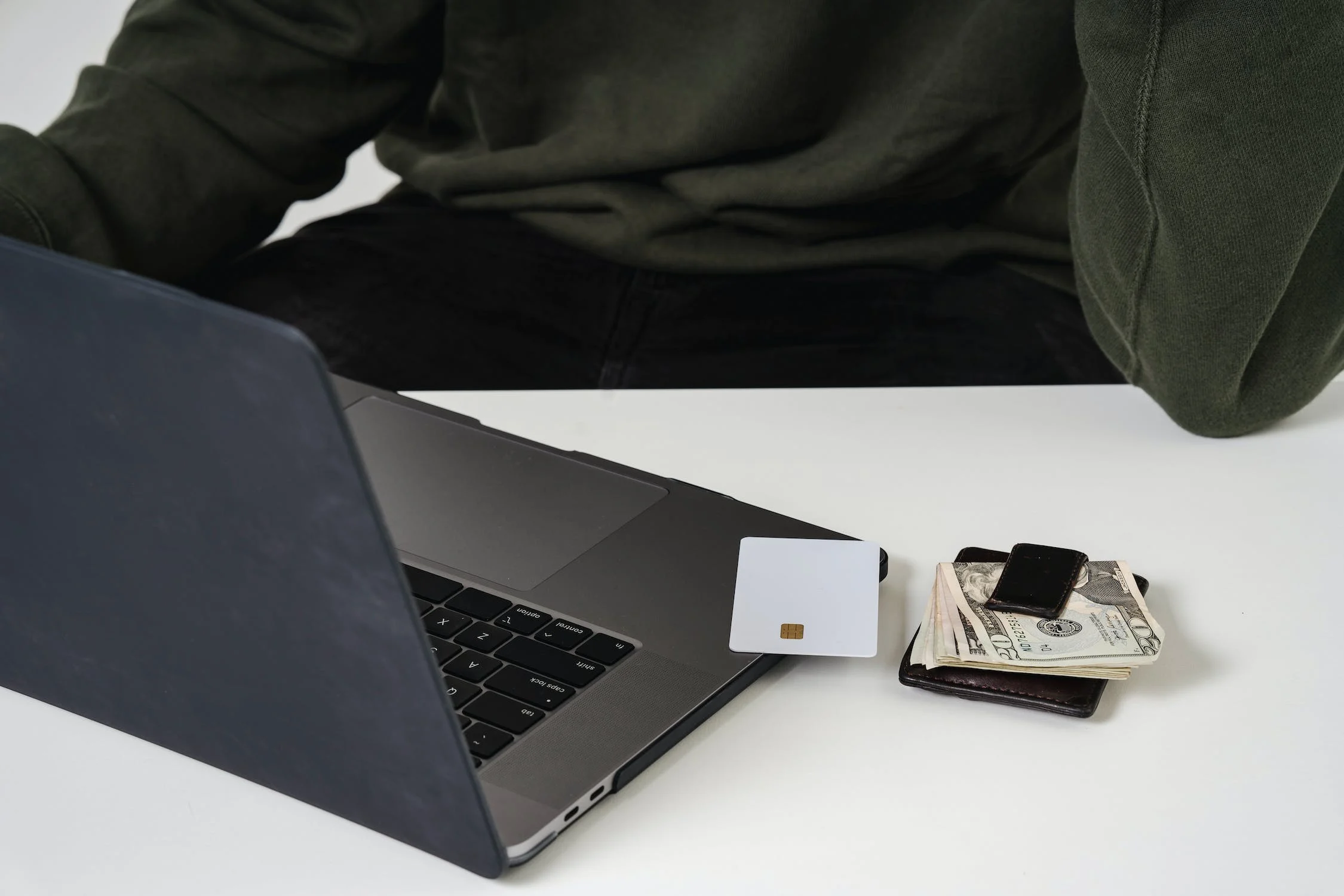
Navigating Your First Credit Card Tips and Tricks for New Users
Understanding Credit Cards: Basics and Terminology
A credit card is a payment card issued by a financial institution, typically a bank, to a cardholder. The cardholder can then borrow funds to pay for goods and services, under the agreement to pay back the borrowed amount plus any agreed-upon additional charges.
Key Terms
- Credit Limit: This is the maximum amount of credit that a credit card company or financial institution has made available to a cardholder.
- Annual Percentage Rate (APR): This is the cost of borrowing on the card, if you don’t pay the whole balance off each month. It’s the annual rate, which is calculated by dividing the amount of interest charged by the amount of the balance.
- Minimum Payment: This is the smallest amount you can pay on your credit card bill to avoid penalties.
- Balance: This is the amount of money you owe to the credit card company. It could be zero, it could be hundreds or thousands of dollars, depending on how much you’ve used the card and how much of the balance you’ve paid off.
- Grace Period: This is the amount of time you have to pay your balance before it starts accruing interest. The grace period usually lasts for about 21-25 days.
- Statement: This is a record of all the transactions, payments, purchases, cash advances, and fees that have occurred during one billing cycle.
Understanding these terms and how they work will give you a solid foundation as you start your journey with your first credit card. Remember, credit cards can be a powerful financial tool if used responsibly.
Choosing Your First Credit Card: Factors to Consider
When choosing your first credit card, there are several factors you should consider to ensure you select the one that best suits your needs and lifestyle.
Interest Rate (APR)
The Annual Percentage Rate (APR) is the interest you’ll pay if you carry a balance on your card. Cards with lower APRs are generally better, but they may require a higher credit score.
Fees
Many credit cards charge various fees, such as annual fees, late payment fees, and foreign transaction fees. Always read the fine print to understand what fees you may be liable for.
Rewards and Benefits
Some credit cards offer rewards programs that give you points, cash back, or miles for your purchases. Consider your spending habits and whether you’ll use the rewards.
Credit Limit
The credit limit is the maximum amount you can charge on your card. If you’re new to credit, your first card may have a low limit.
Grace Period
The grace period is the time you have to pay your balance in full without incurring interest. The longer the grace period, the more time you have to pay off your balance.
Customer Service
Good customer service can be crucial when dealing with billing disputes, lost cards, or suspected fraud. Consider looking at reviews or asking for recommendations.
Remember, the best credit card for you depends on your personal circumstances and financial goals. It’s important to do your research and make an informed decision.
Applying for a Credit Card: Step-by-Step Guide
Applying for your first credit card can be exciting and a bit overwhelming. Here’s a step-by-step guide to help you navigate the process.
Step 1: Check Your Credit Score
Before you apply for a credit card, it’s important to know your credit score. This will give you an idea of what cards you may qualify for.
Step 2: Research Your Options
There are many different types of credit cards available, each with its own benefits and drawbacks. Take the time to research and compare options to find the one that best suits your needs.
Step 3: Read the Fine Print
Once you’ve chosen a card, make sure to read the terms and conditions carefully. This includes the interest rate, fees, and any rewards or benefits.
Step 4: Fill Out the Application
You can usually apply for a credit card online, over the phone, or in person. You’ll need to provide some personal information, such as your name, address, and Social Security number.
Step 5: Wait for Approval
After you submit your application, the credit card company will review it and check your credit. This process can take anywhere from a few minutes to a few weeks.
Step 6: Understand Your Credit Card Terms
Once you’re approved, you’ll receive your card and a credit agreement. Make sure to read this agreement carefully and understand all of your card’s terms and conditions.
Remember, applying for a credit card is a serious financial decision. Make sure to do your research and choose a card that fits your lifestyle and spending habits.

Using Your Credit Card Wisely: Do’s and Don’ts
Credit cards can be a powerful financial tool when used responsibly. Here are some do’s and don’ts to help you use your credit card wisely.
Do’s
- Pay Your Balance in Full Each Month: This is the best way to avoid interest charges and maintain a good credit score.
- Use Your Card Regularly: Regular use of your card shows lenders that you can handle credit responsibly.
- Review Your Statement Each Month: This helps you keep track of your spending and spot any fraudulent charges.
- Take Advantage of Rewards: If your card offers rewards, make sure to use them! This can be a great way to save money on purchases you’d make anyway.
Don’ts
- Don’t Max Out Your Card: Try to keep your balance well below your credit limit. High balances can hurt your credit score.
- Don’t Make Late Payments: Late payments can result in fees and damage your credit score.
- Don’t Apply for Too Many Cards at Once: Each application can cause a small dip in your credit score.
- Don’t Ignore Problems: If you’re having trouble making payments, reach out to your credit card company. They may be able to help.
Remember, the key to using a credit card wisely is to be mindful of your spending, pay your balance in full each month, and take advantage of any benefits your card may offer.
Managing Your Credit Card: Tips for Maintaining Good Credit
Maintaining good credit is crucial for your financial health. Here are some tips to manage your credit card effectively:
Pay on Time
One of the most important factors in maintaining good credit is making your credit card payment on time each month. Late payments can result in fees and damage your credit score.
Keep Your Balance Low
Try to keep your balance well below your credit limit. High balances can negatively impact your credit utilization ratio, a key factor in credit scores.
Don’t Close Old Cards
Length of credit history is another factor in your credit score. If you have old credit cards that you don’t use anymore, consider keeping them open to lengthen your credit history.
Monitor Your Credit Report
Regularly check your credit report for errors. If you find any, dispute them with the credit bureau.
Limit New Credit Applications
Applying for too many new lines of credit in a short period can negatively impact your credit score. Only apply for new credit when necessary.
Remember, managing your credit card responsibly can help you maintain good credit, which can benefit you in many ways, including getting loans approved, renting an apartment, or even landing a job.
Troubleshooting Credit Card Issues: Common Problems and Solutions
Credit cards can be a powerful financial tool, but they can also lead to stressful situations when things go wrong. Here are some common problems that credit card users might face and the solutions to address them:
1. Unauthorized Charges
Problem: You notice charges on your credit card statement that you didn’t make.
Solution: Contact your credit card issuer immediately to report the unauthorized charges. Most companies have zero-liability policies, meaning you won’t be held responsible for any fraudulent charges made on your account.
2. High Interest Rates
Problem: The interest rate on your credit card is higher than you expected, leading to large finance charges.
Solution: If you have a good credit history, you may be able to negotiate a lower interest rate with your credit card issuer. Alternatively, consider transferring your balance to a card with a lower interest rate.
3. Late Payments
Problem: You missed a credit card payment and were charged a late fee.
Solution: Set up automatic payments or reminders to ensure you pay your bill on time each month. If this is your first late payment, you might be able to get the fee waived by calling customer service.
4. Over-Limit Fees
Problem: You’ve charged more than your credit card limit and have been hit with over-limit fees.
Solution: Keep track of your spending to ensure it doesn’t exceed your credit limit. If you’re consistently going over, ask your issuer about increasing your limit or consider using a different payment method.
5. Credit Card Declined
Problem: Your credit card is declined when you try to make a purchase.
Solution: This could be due to a variety of reasons, such as reaching your credit limit, entering incorrect card information, or suspicious activity on your account. Contact your credit card issuer to determine the cause and resolve the issue.
Remember, the key to avoiding credit card problems is to understand how they work, keep track of your spending, and stay on top of your payments. If you do encounter issues, don’t hesitate to contact your credit card issuer for help.









Would you be desirous about exchanging links?
Aw, this was a very nice post. In concept I wish to put in writing like this moreover ?taking time and actual effort to make a very good article?however what can I say?I procrastinate alot and on no account appear to get one thing done.
There are definitely numerous details like that to take into consideration. That is a great level to bring up. I provide the thoughts above as common inspiration however clearly there are questions like the one you convey up where an important factor will be working in trustworthy good faith. I don?t know if greatest practices have emerged around issues like that, but I’m certain that your job is clearly recognized as a fair game. Each girls and boys really feel the affect of just a second抯 pleasure, for the rest of their lives.